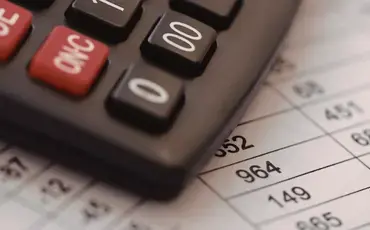
Navigating a Driving Disqualification: Expert Insight from Motoring Solicitors
Driving is an integral part of daily life for many people in the UK. However, certain offences can lead to a driving disqualification which can have a significant impact on your personal and professional life. Understanding the court process is essential in ensuring that you make informed decisions and protect your rights.
In this blog post, we provide a comprehensive guide on how to navigate through a driving disqualification and explore the options available to you.
What does disqualification from driving mean?
Disqualification from driving means that an individual is prohibited from driving any motor vehicle on the public highway (road) or in areas to which the public have access (such as car parks) for the period of the ban. This decision is imposed by the court after consideration of the particular circumstances of the case.
What leads to driving disqualifications?
In the UK, driving disqualifications fall into 2 categories, namely mandatory and discretionary disqualifications.
Mandatory disqualifications, which the Court generally have no option but to order, are imposed for serious offences such as:
- Driving whilst under the influence of alcohol or drugs
- Dangerous driving
- Causing death by dangerous or careless driving
The offences of dangerous driving and causing death by dangerous driving (referred to above) not only carry the risk of substantial custodial sentences, but also lengthy periods of disqualification with a requirement that an extended re-test is passed before the ban expires.
Discretionary disqualifications, on the other hand, are issued at the discretion of the court for offences such as speeding, careless driving or driving without insurance. In these circumstances, the court have to decide whether to impose points or a disqualification before confirming the overall penalty.
A full list of driving offences and causes for disqualification can be found in the Road Traffic Act 1998.
How long does a driving disqualification last?
The length of a ban will be determined by:
- The nature, number and severity of the offence(s) committed.
- The character of the defendant. This concept refers to the background of the individual who is prosecuted. Obviously, a person with no previous convictions or no history of committing similar driving offences will be dealt with more favourably than someone with extensive previous convictions.
By way of example, a person facing a drink/drug driving offence for the first time will face a minimum ban of 12 months. The length of the ban will be determined by the Court’s perceived seriousness of the offence. The level of the alcohol/drug reading will have a significant bearing on the length of the ban and the nature of the penalty. If the same hypothetical individual faced the same offence but had a similar conviction within the preceding 10 years, the minimum ban would be 3 years.
When such a drink/drug driving disqualification is imposed the Court, in its discretion, can offer the defendant a rehabilitation course, successful completion of which would result in a 25% reduction of the total ban.
Does being disqualified from driving invalidate insurance?
Disqualification will inevitably invalidate your insurance and could also affect other drivers named on your policy.
What are the consequences of driving whilst disqualified?
Driving whilst disqualified is a very serious offence which can result in a prison sentence and further disqualification.
Penalty Points disqualifications
If penalty points are imposed for a new offence, the Court will go on to consider the driving record of a defendant.
If the points imposed for the new offence take your relevant points, over a 3-year period, to 12 or more, the Court will generally be required to impose a minimum disqualification of 6 months. In this situation, you could only avoid a ban (or receive a reduction from the usual minimum) if it can be established that you would be caused “Exceptional Hardship”. This is a complicated concept with which assistance from a specialist motoring solicitor is desirable.
What amounts to Exceptional Hardship?
This focuses on the potential impact of a ban on you. This must be more than mere hardship which, of course, a ban is supposed to cause by way of punishment. Such impact would include loss of employment and financial hardship. The Court will have particular regard to the impact on others who may be adversely affected by your inability to drive – fellow employees and vulnerable dependants, for example.
Speak to our motoring solicitors today.
The prospect of a driving disqualification can be a daunting experience. Expert advice and legal guidance are vital in navigating you through the process.
Specialist motoring solicitors, such as those at Smith Partnership, can provide advice tailored to your particular circumstances, thereby enhancing the prospect of the best possible outcome.
Simply get in touch with us today via info@smithpartnership.co.uk, or by calling 0330 123 1229 to discuss your case, and one of our advisors will be on hand to help.

Share this article






















